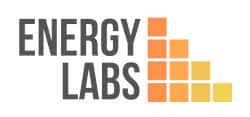When it comes to heating your water, there are a lot of options out there. One of the most popular is a geothermal heat pump water heater. But how does it compare to other water heating options? In this article, we’ll take a look at how a geothermal heat pump water heater measures up against other types of water heaters so you can make an informed decision about which one is right for you.
For starters, let’s compare the costs. Geothermal heat pump water heaters are generally more expensive upfront than traditional electric or gas-powered models. However, over the long term they can save you money on your energy bills as they use less energy than traditional models. They also tend to last longer, so you won’t have to replace them as often.
When it comes to efficiency, geothermal heat pump water heaters are hard to beat. They use the same principles of air source and ground source heat pumps but use the ground as their source of energy instead of air. This means they can operate with much higher efficiency levels than air-sourced models, making them great for those who want to reduce their carbon footprint and save money in the long run.
Geothermal models also tend to be quieter than other types of water heaters due to their lack of moving parts and fans. This makes them ideal for those who don’t want an extra noise in their home when running their hot water system. Plus, they can be installed indoors or outdoors depending on your needs and space requirements.
Finally, let’s consider safety. Geothermal heat pump systems are very safe when installed correctly and require minimal maintenance compared to traditional systems which have more moving parts that require regular maintenance and upkeep in order to function correctly and safely.
Overall, geothermal heat pumps offer a great mix of efficiency, cost savings, noise reduction and safety that make them a great option for those looking for an eco-friendly alternative to traditional gas or electric powered hot water systems. While they may cost more upfront than traditional models, the long-term savings will likely outweigh any short-term costs associated with installation or purchase price over time.
